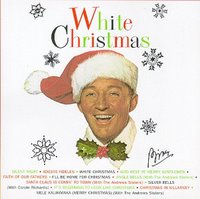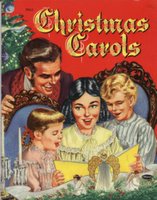BCS: Stands for Bullshit Corporate System
*For thoughts on this year's (2006-07) BCS scandal, read my post, BCS Mess: Three Arguments Keeping the Bullshit Corporate System in Place*
Did anyone else notice that there weren't any college football bowl games on New Year's Day this year? Was anyone else annoyed by this?
 Did anyone else feel betrayed? Confused by the sudden way in which an annual tradition had been removed and annihilated? A sacred ritual has been sabotaged and I have not heard a single cry of blasphemy. Nevertheless, I find it hard to believe there are not others like myself, who were thrown out of sync, our cycles disrupted -- unable to find a sure footing to stand on during those dawning hours of 2006. After all, what were we supposed to do, watch the NFL? (My suspicion, by the way, is that since New Year's fell on a Sunday, the college football games were rearranged: 1) to avoid television contract disputes and conflicts with the network scheduling of those NFL games, and 2) to prolong, even further, the length of the college bowl season, which used to take place on a single day and now stretches on for nearly two weeks. Which is to say: $$$$$$$$!)
Did anyone else feel betrayed? Confused by the sudden way in which an annual tradition had been removed and annihilated? A sacred ritual has been sabotaged and I have not heard a single cry of blasphemy. Nevertheless, I find it hard to believe there are not others like myself, who were thrown out of sync, our cycles disrupted -- unable to find a sure footing to stand on during those dawning hours of 2006. After all, what were we supposed to do, watch the NFL? (My suspicion, by the way, is that since New Year's fell on a Sunday, the college football games were rearranged: 1) to avoid television contract disputes and conflicts with the network scheduling of those NFL games, and 2) to prolong, even further, the length of the college bowl season, which used to take place on a single day and now stretches on for nearly two weeks. Which is to say: $$$$$$$$!)
To make things clear, there were several bowl games played on Monday, the day after New Year's. There were also several bowl games played in the week leading up to New Year's, and there have been several games played since Monday, the day-after New Year's. Indeed, there have been an excess of bowl games. Pointless, poorly officiated, not very well-executed bowl games. Did anyone see the MasterCard Alamo Bowl (Michigan vs. Nebraska) or the Outback Steakhouse Bowl (Florida vs. Iowa), both of which were ruined by bad calls and non-calls by the officials? Did anyone really expect #5 Oregon, which had been shafted by the BCS in favor of lower-ranked Notre Dame (which brings in a much larger TV audience), to show up excited to play #23 Oklahoma in the Pacific Life Holiday Bowl on December 29, a Thursday night? Is it any wonder that the only non-BCS match-up that seemed genuinely interesting -- LSU vs. Miami in the Chick-fil-A Peach Bowl -- was a complete blowout? What a waste...
Now that the BCS has -- for the first time, in its eighth year -- finally arrived at the dream match-up (that it has been promising all along) between an unambiguous #1 and an unambiguous #2, all the other bowl games have been rendered superfluous. Great match-up between Notre Dame and Ohio State in that Tostitos Fiesta Bowl, eh? So what. Joe Paterno and Bobby Bowden, tête-à-tête in the Fed-Ex Orange Bowl! Big deal. With USC and Texas in the Rose Bowl Game Presented by Citi, we have at last arrived at the Perfect Bowl Game, a contest of titans that leaves all other college football games in the dark of its long, mighty shadow. Even if the game does live up to its billing (and I've been predicting a rout for months), that would simply make the other bowl games -- including the other BCS bowls -- seem even more meaningless.
I've always been of the mind that we either need to stick with the old bowl system, with its traditional conference match-ups, or go all the way to a real tournament setting -- which means at least eight teams. This in-between stuff is stupid. College football was more fun when there was an end-of-season controversy anyway. Now that things are all set to be settled, fair and square, ESPN has become so desperate for something to hypothesize about, it has been running an idiotic poll to determine whether USC is really the greatest football team of all time and how does USC compare to the other great teams of the past ten or so years (all the other contenders for 'greatest of all time,' apparently, are teams from recent memory -- Nebraska '95, Miami '01, and so forth). Woody Hayes and Bear Bryant, I'm sure, are rolling in their graves.
Did anyone else notice that there weren't any college football bowl games on New Year's Day this year? Was anyone else annoyed by this?
 Did anyone else feel betrayed? Confused by the sudden way in which an annual tradition had been removed and annihilated? A sacred ritual has been sabotaged and I have not heard a single cry of blasphemy. Nevertheless, I find it hard to believe there are not others like myself, who were thrown out of sync, our cycles disrupted -- unable to find a sure footing to stand on during those dawning hours of 2006. After all, what were we supposed to do, watch the NFL? (My suspicion, by the way, is that since New Year's fell on a Sunday, the college football games were rearranged: 1) to avoid television contract disputes and conflicts with the network scheduling of those NFL games, and 2) to prolong, even further, the length of the college bowl season, which used to take place on a single day and now stretches on for nearly two weeks. Which is to say: $$$$$$$$!)
Did anyone else feel betrayed? Confused by the sudden way in which an annual tradition had been removed and annihilated? A sacred ritual has been sabotaged and I have not heard a single cry of blasphemy. Nevertheless, I find it hard to believe there are not others like myself, who were thrown out of sync, our cycles disrupted -- unable to find a sure footing to stand on during those dawning hours of 2006. After all, what were we supposed to do, watch the NFL? (My suspicion, by the way, is that since New Year's fell on a Sunday, the college football games were rearranged: 1) to avoid television contract disputes and conflicts with the network scheduling of those NFL games, and 2) to prolong, even further, the length of the college bowl season, which used to take place on a single day and now stretches on for nearly two weeks. Which is to say: $$$$$$$$!)To make things clear, there were several bowl games played on Monday, the day after New Year's. There were also several bowl games played in the week leading up to New Year's, and there have been several games played since Monday, the day-after New Year's. Indeed, there have been an excess of bowl games. Pointless, poorly officiated, not very well-executed bowl games. Did anyone see the MasterCard Alamo Bowl (Michigan vs. Nebraska) or the Outback Steakhouse Bowl (Florida vs. Iowa), both of which were ruined by bad calls and non-calls by the officials? Did anyone really expect #5 Oregon, which had been shafted by the BCS in favor of lower-ranked Notre Dame (which brings in a much larger TV audience), to show up excited to play #23 Oklahoma in the Pacific Life Holiday Bowl on December 29, a Thursday night? Is it any wonder that the only non-BCS match-up that seemed genuinely interesting -- LSU vs. Miami in the Chick-fil-A Peach Bowl -- was a complete blowout? What a waste...
Now that the BCS has -- for the first time, in its eighth year -- finally arrived at the dream match-up (that it has been promising all along) between an unambiguous #1 and an unambiguous #2, all the other bowl games have been rendered superfluous. Great match-up between Notre Dame and Ohio State in that Tostitos Fiesta Bowl, eh? So what. Joe Paterno and Bobby Bowden, tête-à-tête in the Fed-Ex Orange Bowl! Big deal. With USC and Texas in the Rose Bowl Game Presented by Citi, we have at last arrived at the Perfect Bowl Game, a contest of titans that leaves all other college football games in the dark of its long, mighty shadow. Even if the game does live up to its billing (and I've been predicting a rout for months), that would simply make the other bowl games -- including the other BCS bowls -- seem even more meaningless.
I've always been of the mind that we either need to stick with the old bowl system, with its traditional conference match-ups, or go all the way to a real tournament setting -- which means at least eight teams. This in-between stuff is stupid. College football was more fun when there was an end-of-season controversy anyway. Now that things are all set to be settled, fair and square, ESPN has become so desperate for something to hypothesize about, it has been running an idiotic poll to determine whether USC is really the greatest football team of all time and how does USC compare to the other great teams of the past ten or so years (all the other contenders for 'greatest of all time,' apparently, are teams from recent memory -- Nebraska '95, Miami '01, and so forth). Woody Hayes and Bear Bryant, I'm sure, are rolling in their graves.



